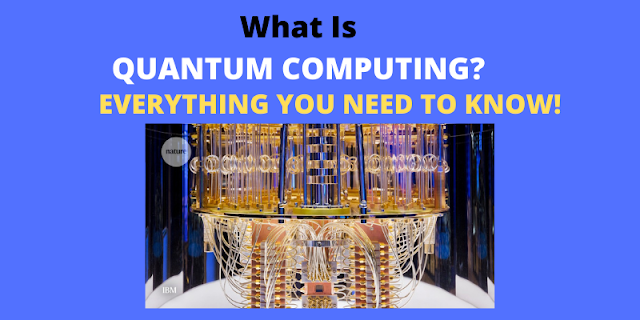Quantum Computers are based on quantum physics to perform computations and store the data. Quantum computers are different from traditional computers even it is different from Supercomputers because Quantum computers are machines that use the properties of quantum physics to store data and perform computations.
Quantum computers are also very different because his Low-level language is not Bit its low-level language is QUBITS.
What is Quantum Physics?
Quantum physics is the study of matter and energy at the most fundamental level. It aims to uncover the properties and behaviors of the very building blocks of nature. While many quantum experiments examine very small objects, such as electrons and photons, quantum phenomena are all around us, acting on every scale.
Quantum Physics in Quantum computing:
Quantum computers are machines that use the properties of quantum physics to store data and perform computations.
Atoms in quantum computer:
Hydrogen, lithium, and sodium are elements that can have just one electron in their electron shell. This is the model used for quantum computing. When the team creates artificial atoms equivalent to hydrogen, lithium, and sodium, they can use that single electron as a qubit, the quantum version of a binary bit.
READ MORE:
- How to Make sure a File safe before Downloading
- How To Create a Voting Poll or Survey in WhatsApp
- How to Install and Run Android Apps on Windows 11
- How to send large files over the internet | Free Cloud Service
- How to Trace E-Mail through E-mail Header Investigation?
- 10+ Interesting Notepad Tricks and Hacks To Do | You Cannot Miss!
- How Elliot Hacked the Prison? | Mr Robot Hacks!
BASICS of QUANTUM COMPUTERS-
Quantum computing is a type of computation that harnesses the collective properties of quantum states, such as superposition, interference, and entanglement, to perform calculations.
What is Superposition?
Superposition is the ability of a quantum system to be in multiple states simultaneously.
For example “When we flip a coin when it lands it would be Head or Tail, But the coin when it is in the air it holds both Head and Tail at the same time. That is the principle of superposition that is used in Quantum Computers.
By here the formation of QUBITS was started, so let’s see how Qubit works in Quantum computing.
Qubit:
The processing and storage of 1’s and 0’s of classical systems give way to qubits or quantum bits as the fundamental building block of quantum information, experienced as a two-state quantum-mechanical system. The power of these qubits is their inherent ability to scale exponentially so that a two-qubit machine allows for four calculations simultaneously, a three-qubit machine allows for eight calculations, and a four-qubit machine performs 16 simultaneous calculations.
Entanglement:
It is a physical phenomenon that occurs when a group of particles is generated, interact or share spatial proximity in a way such that the quantum state of each particle group cannot be described independently of the state of other including when the particle is separated by a large distance.
Suppose when we are adding an additional qubit to a quantum computer, a 50-qubit quantum machine can examine two to the power of 50 states simultaneously. The increase in power plus the entanglement of qubits allows quantum computers to solve problems efficiently, finding a solution faster, with many fewer calculations.
Interference:
In physics, the net effect of the combination of two or more wave trains moving on intersecting or coincident paths.
In quantum computing, Interference can be used to control quantum states and amplify the signals that are leading toward the right answer, while canceling signals that are leading to the wrong answer.
Now I am going to tell the names of companies that working on Quantum Computers: Mainly 98 organizations working on Quantum Computers some of them are-:
IBM
MICROSOFT
D-WAVE SYSTEMS
INTEL
ATOS
QUANTUM SUPREMACY
RIGETTIE
And many more
Last Word: Now here is the end of the article this is the overall information for you. Don’t forget to share this post. Share it on Facebook or any social site. Thank you so much.

